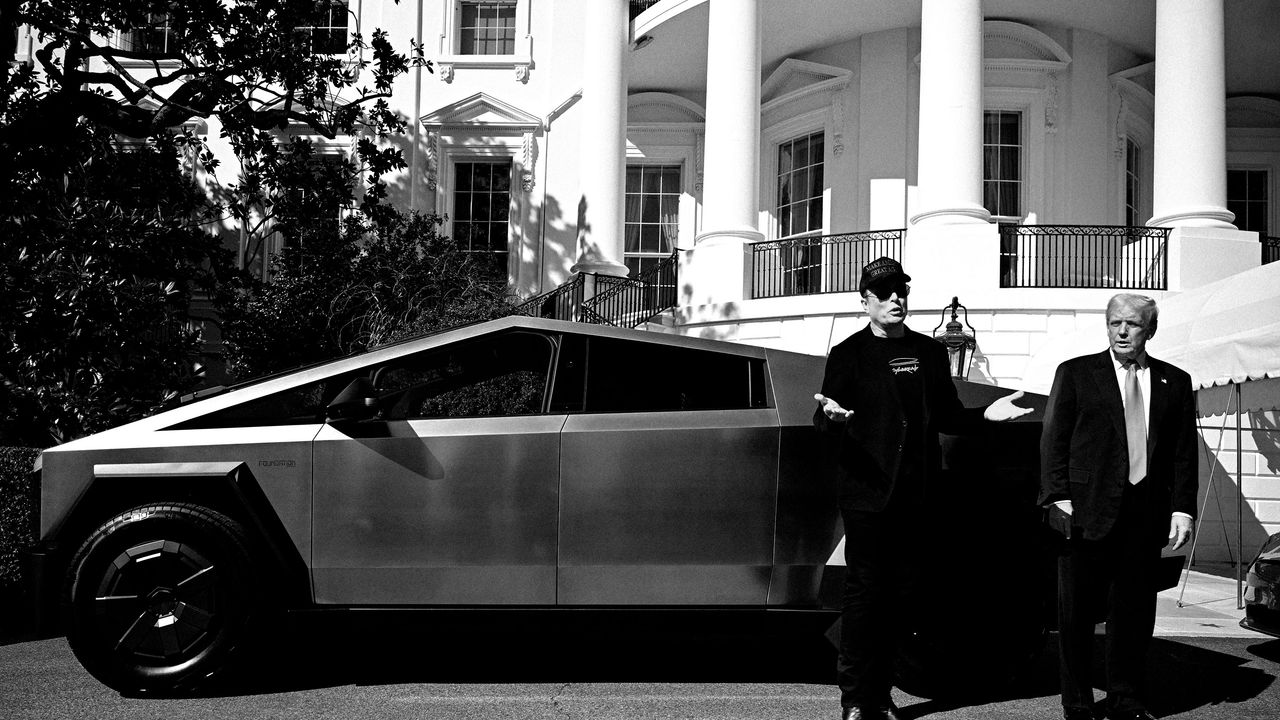One Atlanta-based tech marketing executive, a self-described progressive who has owned two Tesla models since 2019, explained his decision to Vanity Fair. “I actually really like the cars, and I know that the company probably has lots of good people who work there,” he said, but “it’s time for me just to divest from all things Elon.” Last week, he became a proud ex-Tesla driver. “Now, that’s with Carvana,” he said, “and I picked up my Rivian truck last Monday.”
In addition to ditching the actual car, he sold off his Tesla stock, and once the Rivian he wanted was available, made the swap. He said that he took a slight loss on the sale, but that “out of curiosity, I keep refreshing the quote every few days, and it is dropping faster than you would think.”
Brian Moody, an auto industry analyst and senior editor at Kelley Blue Book, told Vanity Fair that those giving up their Teslas for a new car were almost certainly losing money in the deal: “Electric cars on the whole depreciate 11% greater than a gasoline-powered car over the same period of time,” he said. That’s partly due to the gadget-adjacent cycle of technology refreshes on EVs, the same way that iPhones seem to lap themselves in capabilities every few years. And it’s hardly sticking it to Musk. “Those people have already spent their money,” he said. “You’re not hurting anybody by selling your used car and teaching someone a lesson.”
Tesla actually hit its sales peak in February 2023, and, according to KBB data, they may never again match that previous mark. Moody pointed out the growing competition from other suppliers. “When Tesla started, there really wasn’t much to pick from, and now there’s tons of great things to pick from,” he said.
Jennifer Newman, editor in chief of Cars.com, told VF that visitors to the site were seeking out articles on the potential impacts of Trump’s ever-shifting tariffs, and that Cars.com’s American-Made Index, which parses data to help consumers understand the domestic components of their vehicles, is seeing more interest than is typical. Additionally, in February, 2.1% of surveyed visitors to the site said they would consider buying a Tesla, Newman said. By March, that had dropped by half a percentage point to 1.6%. It’s a shred of the overall auto-buyer pie, but a roughly 25% drop in consideration in a month is nothing to sneeze at. Other EV companies have seen a dramatic shift in the other direction: Rivian jumped from 1% in February to 1.3% in March; in the same time frame, Polestar went from 0.6% to 1.7%; and Lucid zoomed from .4% consideration to 1.5% in a month.
“So Tesla, in theory, is losing consideration,” Newman said, while other EV-focused companies gain.
The confusion and heightened feelings around Tesla and Musk present an opportunity for other auto companies to swoop in to take on the role of cool-guy eco-friendly car du jour. New data shows that 11% fewer new Teslas were registered this January versus the same time last year, though EV registrations in general, including rival brands, are up 44% in the same period. Yet Carvana data shared with VF shows that 88% of EV owners said they’d buy another EV in the future. Millennials—the most politically liberal generation ever, according to voting data—were the largest segment of EV buyers on Carvana, accounting for 65% of purchases in Q2 2024.
